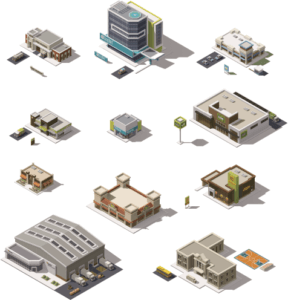So why has the NHS – a public service, fallen from grace?
 The UK GP has earned ‘their’ degree. If you are like me, now retired, I need their services as much as anyone else. However, I am grateful that my background is in medicine, my background being a podiatrist. Without this, I would find navigating the healthcare system frustrating.
The UK GP has earned ‘their’ degree. If you are like me, now retired, I need their services as much as anyone else. However, I am grateful that my background is in medicine, my background being a podiatrist. Without this, I would find navigating the healthcare system frustrating.
I feel that the patient was pushed from the pillar to the post in a fog of confusion. Please do not be misled. I do not have a hate relationship with the GP or consultant. Having worked with many, been one, and worked in nine hospitals and numerous health centres, I have a fair handle on the system.
However, I have a hate relationship with a system that is beaurocratic and treats intelligent patients and its staff as morons. The NHS is inefficient and cannot manage demand or need, allows wastage, embraces poor management due to too many layers, and still operates around a blame culture. It allows people to abuse the system both patients and providers and often rewards the wrong people.
Changes to the NHS are Endemic
No day goes by when we don’t read about the loss of face-to-face contact, delays in receiving an appointment, and extended waiting times. There is a benefit to undertaking consultations by phone or video link, but this does not suit everyone. It is easy for us to believe Covid was the root cause of all the NHS’s woes. This is not true. Medicine changed forever in the nineties when the NHS started to compete along a commercialised idea, which started with GP fundholders. The NHS started this change despite decaying where politicians thought fundholding would shake up the system with its lengthy waiting times. Conceptually, it might have been successful, but you cannot mix oil and water!

The NHS has become too big, too inefficient and has lost its way.
The training establishments forming the medical courses undertaken through universities are trying to produce a medical product, i.e. a student fit for purpose, but medicine has changed. The needs of patients have changed and sewn into the smorgasbord of conditions, which are confounding problems that many tests do not pick up. Hands-on practical skills have waned over time, and the quick-to-reach prescription pad has been one such problem. A quick-fix medicine! You can read Your Life in My Hands Book Review as Rachel described her experience in the NHS as a junior doctor.

The quick-fix medicine!
Medical training cannot cover everything, and that is why many health professionals have expanded their medical knowledge. My podiatry colleagues have already started to embrace wider responsibilities in physical medicine and foot surgery. This workforce is largely unrecognised, but I am trying to guess the future.
The gender balance has altered in medicine. Healthcare requires all genders and viewpoints to be successful. Male entrants have ebbed away, looking for occupations which reap rewards with less stress. Women often interview better, are ahead of males educationally in the maturity stakes and dominate some medical universities. While the number of women has increased, they require support if they wish to have families. Part-time work has been a solution, and as good as these women are at juggling their lives, their battles are more challenging than those of many men. Junior doctors are often whipped into a state of depression (see Rachel’s story above), battered by long hours and a never-ending shortage of staff, taking on responsibilities outside their pay grade. Some of these concerns have indeed been reviewed and even addressed, but some doctors have broken ranks and published their own stories, often pitted with despair.
Is medicine fit for purpose?
There has been criticism for a fixed consulting time of 10 minutes. Patients, if allowed, need up to 2 minutes to discuss their concerns before the consultation can proceed. A doctor who exhibits hurry will directly affect the flow of the patient’s concern, meaning that information so important to the diagnosis may be left out. Part of the problem is actually patient lethargy. The doctor will sort everything! It is a form of eternal reliance on the doctor.
Well, that comes back to education and how to use your GP. The truth is that GPs, as a profession, have set the time for that precious consultation, although you can ask for a back-to-back consultation if you need longer. Good doctors are penalised for giving more time, and yet the British Medical Association is fully aware of this problem.

The 10-minute goal
Poor medicine in the 21st century
The human genome has been a game changer, and in so developing a catalogue of genes for diseases, we are learning at our cost that medicine, in fact, is still in its infancy. This is at odds with the fact so much good practice was established in the 19th and 20th centuries – Lister and Victorian surgery. We cannot ignore the great benefits bestowed by vaccinations against previous deadly diseases from Jenner (smallpox) to Professor Sarah Gilbert (AZ) and Dr Ugur Sakin and his wife Ozlem Tureci Pfizer (Covid-19).
However, we have learned some startling things. First of all, men and women are different! Most drugs are tested on animals like mice and rats and then applied to male physiology. Many drugs fail to work based on their side effects. Side effects are treated with other drugs to nullify those problems, and it all becomes an expensive and crude process. The antibiotic scandal has left us with many issues where resistance has been created. Superinfections and nosocomial (hospital) infections are still a 21st century concern. The potential prevention of litigation from infection has not helped this. Designer drugs and medicine are still a way off, but they will redefine medicine.
Poor medicine comes from trial and error; inadequate understanding of patients’ needs or failure to ensure patients share decision-making is a stumbling block. Delays in referrals arise because of budgetary concerns, retention of problems in-house, and wasteful delaying tactics with pointless blood tests. A GP once treated a malignant melanoma as a verruca, my first case of skin cancer in practice. By the time the patient reached me, much damage had been done.
Social and medical care often fail to join up, and some of the most disturbing cases involve overworked social workers. The NHS and social services have frequently become unhinged without any clear road map. Anyone with even a modicum of understanding appreciates that social care, whether for the elderly, handicapped or mentally ill, are equal ingredients that require integrated health care.
Progress on the horizon
One of the most recent changes relates to pharmacists’ prescribing practice. Many are able to provide first-line medical treatment and prescribe it. The medical profession broadly welcomes this, but it is a process in its infancy. Where the domain of the medical doctor is shared amongst Allied Health Professions (AHPs) and nurses, we can see early benefits. These are called advanced care practitioners. Podiatrists can perform uniquely alongside medically trained doctors, yet some of the educational resources remain unfunded.
Nurses and health care assistants form the bulk of medical health delivery and maintain an extensive support framework. Given these opportunities, such people can extend the health care provision to a higher level. Nurse practitioners, podiatrists and physiotherapists, together with optometrists, can prescribe, removing the reliance on GPs. Although each professional has to embark on costly top-up education initially, these new prescribers are often more cautious about how they prescribe than medical doctors. AHP and nurse practitioners are forming a new group of professionals who can deliver some of the medical care around their professions.

Gold does not usually follow healthcare professions, but job satisfaction does.
Bad management
Successive Governments know the NHS is a political minefield. By the 21st century, the NHS had become a religion to the voter in the eyes of the media, something to keep the prophets happy. The adage “don’t fix something if it isn’t broken” might have applied. Still, when we went from medical managers to industrial managers to MBA degree-acquired managers, back to nurse managers and then mixed with CEOs, we were doomed.
Driven by targets and waiting times, A&E-focused overload attracted complaints and has seen managers struggling. Failed CEOs were paid compensatory amounts to leave after poor performance, and then good clinicians were tempted with mutually agreed resignation schemes to leave to save money. The drain on our skilled medics soon appeared, and senior consultants would eventually have to be replaced with more people as the expertise was lost. One consultant told me he would have to be replaced by two consultants because his breadth of ability could not be met in modern terms. Another consultant in a different specialty had to be replaced by three consultants. This has been created because modern consultants have narrowed fields of expertise partly imposed by the EU directive to reduce training hours. You can see this might be correct in terms of employment but not in terms of acquired experience.
Poor contracts for some
Aneurin Bevan was asked how he convinced doctors to join the National Health Service (NHS). He allegedly replied, “I stuffed their mouths full of gold.” Bevan needed the consultants on his side in 1947, so he gave them lucrative contracts to nationalise the health care system.
GPs have also entered with lucrative contracts renegotiated over time and paid attractive pensions. The older on call disappeared and the family doctor relationship has withered with the dependency on locum doctors. It is not that locum doctors are poor – far from it, they just are too peripatetic.
Today, substantial pension pots offered to doctors some time ago have now caused major tax disadvantages, and many leave early to avoid their punitive effects. GPs are not employed as most healthcare workers but are self-employed and own their buildings in many cases. As the mass exodus continues, the General Medical Council indicated that there are 21,000 doctors due to retire in September 2022. NHS has estimated that there is a staff shortage of around 110,000.

Hospitals are like growing cities and form jungles of glass and concrete, which date quickly.
GPs are businessmen and women, or they are if they hold senior partnerships with buildings and people to look after. We see the GP directly above the watermark as an iceberg; the background workload remains unseen below the water level. Consultants are different from GPs in that they work mainly in hospitals but might undertake sessions in a GP surgery. Some GPs have co-consultant workloads in hospitals and offer specialisation within their practice.
Hospitals are cities that grow over time and soon outgrow their workload. New buildings make older ones appear as dying vegetation from the outside. Some are just not lovely places to visit, let alone work in. Budgets are divided according to internal bidding wars, priority and, of course, what is politically framed within sight of the telescope, let alone the microscope and flagged as essential. Cancer and heart disease have won out in the past, but from time to time, money is thrown at a problem like hips and knees as a temporary stopgap. Internal NHS accounting is like no other. Underspends are penalised, as are overspends, but many departments ignore spending as they know extra money will appear if the problem hits a critical level. Meetings and internal courses require even top-level clinicians to cancel clinics, pushing patients back and lengthening their treatment waits.
Whole time equivalents
Consultants split their time between the NHS and the independent sector, although some remain loyal to the NHS alone. Their contracts are divided into sessions. It is possible to work more sessions because of overtime and extra managerial duties. Surgeons often make up their salary in the independent (private sector) system, taking away an essential NHS resource – experienced professionals. This was the deal that Bevan had to negotiate. Junior consultants have indeed found it more challenging to follow their senior colleagues into the independent sector. Still, eventually, they trim back their hours if they want to work in this sector. Of course, if a consultant falls below his or her ideal minimum contractual hours, they are penalised, and so a status quo is met to maintain optimum service. Their duty is, first and foremost, to the NHS.
Waiting list initiatives
The NHS reaches a critical point each year when targets and wait times escalate; this was before COVID-19. The independent sector would clear its decks for a flood of NHS-driven waiting list initiatives. The same NHS consultants pick up this work in the independent sector as theatre time is better organised without the crippling effect of internal meetings.
GPs and consultants are different from other key workers who are contracted on less favourable terms and cannot work under the same flexible employment contract. The only way to mix practice, as in podiatry, is to work on an agreed flexible contract—i.e., 2 days NHS, 3 days in your own practice. This works well for clinicians but not for the continuity of the service. To make up for the deficit, the UK depends upon overseas recruitment for many parts of the healthcare system.
Litigation
The phrase ‘back to basics‘ makes some sense, but then mental disease is an essential community service with a shortage of specialists. Furthermore, modern society is more sensitive than in times past. Society does not tolerate medical complications and focuses on how and who caused the problem, whether relevant or not. Why was more not done? Accidents and faults that cause errors in treatment delivery can never be excused, but the legal profession has trodden all over the NHS and looked for openings to sue the NHS. Part of the NHS budget goes toward a pool of money to fight litigation.
Rather than having a ceiling on settlement, the NHS now has to pay serious sums of money often for nuisance litigants. Human Resources as an industrial department can be ruthless and not always known for being sensitive. Nurses are hounded for sickness despite the fact that such illness is often genuine and related to depleted human bodies. Dismissals follow in some cases, but senior (medical) staff are often placed on ‘gardening leave’ for years without resolving an internal dispute. Each of these areas forms a weakening of a system which so often says it is strapped for cash.
The NHS is a massive tanker carrying a vast population of employees. Often lost at sea and having to fight fires on a regular basis, the effect of COVID has added to the strain. Yet another chancellor has been persuaded that more money is needed when it is not about money but a cycle of bad practice that consumes humans who truly work to help patients. When they fail, so does the care available to patients.
I was sad to leave the NHS when I did, but I had reached a critical point of frustration and disappointment. Thirty-six years of investment had to be put to one side as I moved into the independent sector, where, at last, I could focus on patient welfare without the worry of managerial duties and mindless requests that involved wasted efforts.
The daily diet of news about Britain’s failing health service is a fairground carousel. It’s a metaphor for going around and getting nowhere. If politicians do not get off the carousel and don’t talk to the ground staff, nothing will change, and Britain will continue to deliver substandard care. Unfortunately, some advisors are not always the best people. Political pressures bend toward the requirements of the Government, thus making advisors’ tasks more difficult.
It is so comforting to have someone listen, someone to take your problem seriously, someone who is engaged, someone who has time to talk, and a service you can trust and be proud of—sorry, Britain, the moth is already in the cupboard and has been there longer than you think.
David is a former AHP consultant and podiatric surgeon who worked in the NHS, the Independent sector, and the education sector during his 40+ years as a registered professional. In his next article, he will discuss how to get the best out of a patient consultation with an example of a case history (out in June).
Thanks for reading ‘A dying healthcare system’ by David R Tollafield
Published by Busypencilcase Communications Est. 2015 for ConsultingFootPain



Thought provoking and highly relevant David, the NHS has become its own enemy. Your observation about a cycle of bad practice and its effect is particularly telling